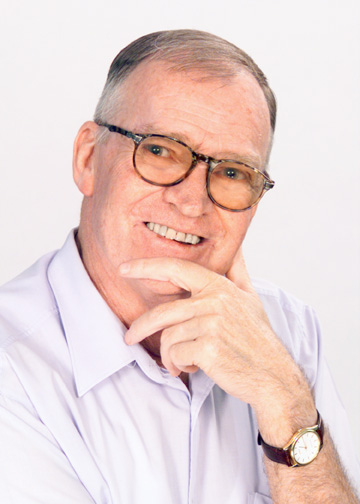Home
Article
Archive
2000 2001
Editor:
Neil Johnston
Columnists:
Rollo
Manning
Leigh Kibby
Jon
Aldous
Roy Stevenson
Brett Clark
Ken Stafford
Pat Gallagher
Heather Pym
AUGUST, Edition # 32, 2001
[Home] [About The Newsletter] [Topics Covered] [Testimonials]
ROLLO MANNING
|
* Click on photograph to view list of previous articles by this author. |
PHARMACY
STRUCTURE
"Suburbs" can Learn from Remote Isolation
Click on the Newsletter Reader's Forum link to access a forum from which you can express your comment or viewpoint on this article.
The author values your input, so please take the time to register your details, and participate in the only free debate on the future of Australian pharmacy.
Registration is free, and required once only, for permanent access.
You do not need to register if you only wish to view comments.
There should be a growing interest from "mainstream" Australian pharmacy practice in the example being set in remote Australia.
Since the Commonwealth introduced the Section 100 PBS arrangements for supply of PBS to remote Aboriginal health clinics, there has been a "weird" reaction from pharmacists involved in the process.
Almost as if they accept the fact that there is someone else who can dispense, who is not a doctor or a pharmacist.
And what does State/Territory law say?
Well it seems okay!
Just because the Commonwealth is paying the bill, it is evidently all right for a nurse or health worker to make the supply.
Sometimes this may be with the qualification that there was a doctor on staff, or present.
What is the point of this and where is the example?
The point is: Is anyone the worse off for what is happening?
Are the Aboriginal residents of the remote town or community any the worse off because of the lack of conventionality in the way their medicines are dispensed? This activity has the endorsement of the Pharmacy Guild of Australia, and was the brainchild of the Australian Pharmaceutical Advisory Council.
It is continuing the long standing practice of nurses and Aboriginal Health Workers, having access to a wide range of Schedule Four medicines for prescribing to clients with illnesses which fall within the scope of their training and clinical competency.
If a pharmacist insists on being the one to dispense, there has to be some "value add" component of the process that is of benefit to the patient.
Some pharmacists are vehemently opposed to the use of the word "dispense" for any other context than them putting the script data against a patient medication profile, and checking the label.
So the question must be asked:
"How often is a prescription dispensed by a pharmacist and there is something detected which AVOIDS a misadventure for the patient?"
Maybe some learned colleague could answer this question.
Now in the case of the remote health clinic, the dispensing is being done by health clinic staff without the same training in pharmacy as a pharmacist and it then needs to be asked:
"Who suffers adversely from this?"
The implications of this on PBS and Medicare are immense.
Why does it cost Medicare the price of a consultation to a doctor, if the illness could be effectively treated by a lesser-qualified health professional?
Why does it cost the PBS the amount it does for scripts to be dispensed at 5,000 pharmacies around Australia, if the same task can be done at a health clinic, with lesser qualified staff than a pharmacist?
Just how important are these barriers to access for the public?
Any comments will be welcomed, or post your thoughts on the consultation forum associated with this site.
ends
Visit Rollo Manning's model relating to the "Job of a Pharmacist". There are periodic new postings keeping the model updated.
The newsletter archives are now fully searchable via the search engine on the left hand side of this page. If you would like to find similar articles to the above material, please enter the appropriate keyword(s). To retain context with multiple keywords or phrases, please enclose in inverted commas.
The comments and views expressed in the above article are those of the author and no other. The author welcomes any comment and interaction that may result from this and future articles. The editor would be pleased to publish any responses. You can now visit Rollo Manning's website at http://www.rollomanning.com* If you have found value in this newsletter, please share it with a friend, or alternatively, encourage a colleague to subscribe at neilj@computachem.com.au .
* Don't forget to advise of any change in your e-mail address so that your subscription may be continued without interruption.
* Letters to the editor are encouraged, or if you have material you would like published, please forward to the editor.
* You are invited to visit the Computachem web site at http://www.computachem.com.au .
* Any interested persons who would like to receive this free newsletter on their desktop each fortnight, please send a single word e-mail "Subscribe" to neilj@computachem.com.au .
* Looking for an organised reference site for medical or other references? Why not try (and bookmark) the Computachem Interweb Directory , for an easily accessed range of medical and pharmacy links, plus a host of pharmacy relevant links.
The directory also contains a very fast search engine for Internet enquiriesBack to Article Index
Article Archive 2000
Article Archive 2001
Home

